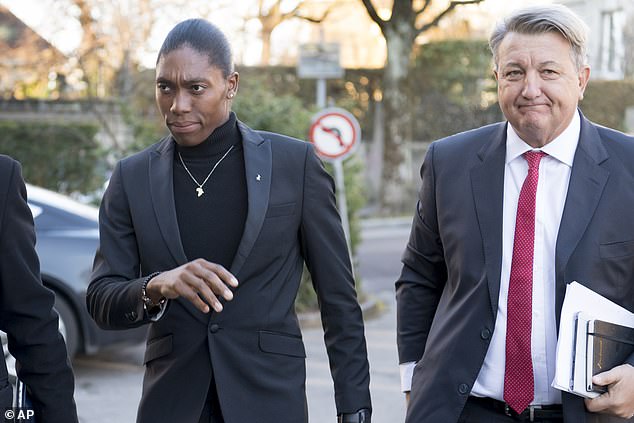South Africa to appeal Semenya testosterone ruling
Athletics South Africa (ASA) will lodge an appeal against the Court of Arbitration for Sport’s (CAS) decision to rule in favour of the International Association of Athletics Federations (IAAF) in its landmark legal case against Caster Semenya, it has been claimed.

The CAS decision means Semenya and other affected athletes will have to take medication to reduce their testosterone if they want to continue running on the world stage at events between 400 metres and a mile.
Semenya, a two-time Olympic and triple world champion over 800m, had been hoping to overcome the regulations.
The legal team of the 28-year-old had argued the testosterone in her body was naturally occurring and so to ban her would be unfair.
A spokesman for Sport and Recreation South Africa, Vuyo Mhaga, told Agence France-Presse (AFP) an appeal would be filed by the ASA at the Swiss Federal Tribunal.
It would need to be done before the end of the month, 30 days after the judgment was issued on May 1.
Mhaga said the appeal would be based on complaints over the judges’ past record on similar cases, lack of clarity over how the ruling could be implemented and how the evidence was handled.
“It is not explained how the IAAF is going to administer those regulations,” he told AFP.
“We feel that the scientific information that has been brought has been completely ignored and we’ve got a belief that a different court will arrive at a different determination.
“Everything is being done through Athletics SA.”
TimesLIVE reported that South Africa’s Sport Minister Tokozile Xasa had instructed the ASA to appeal the CAS decision.
In a statement issued today, the Ministry said the move had followed advice by a high-level panel that had met to discuss the way forward.
Among the three elements on which the appeal is based is that the ASA believes two of the three arbitrators should recuse themselves because they had been involved in the case of Indian sprinter Dutee Chand in 2015.
Early last year, the IAAF cancelled its “hyperandrogenism regulations”, which had been primarily challenged by Chand, and replaced them with differences of sex development (DSD) regulations.
Read Also: Semenya loses appeal against IAAF testosterone rules
It is also believed the CAS judgment did not match the strength of ASA’s scientific‚ medical and legal case, and that CAS did not address the relevant legal questions it should have.

